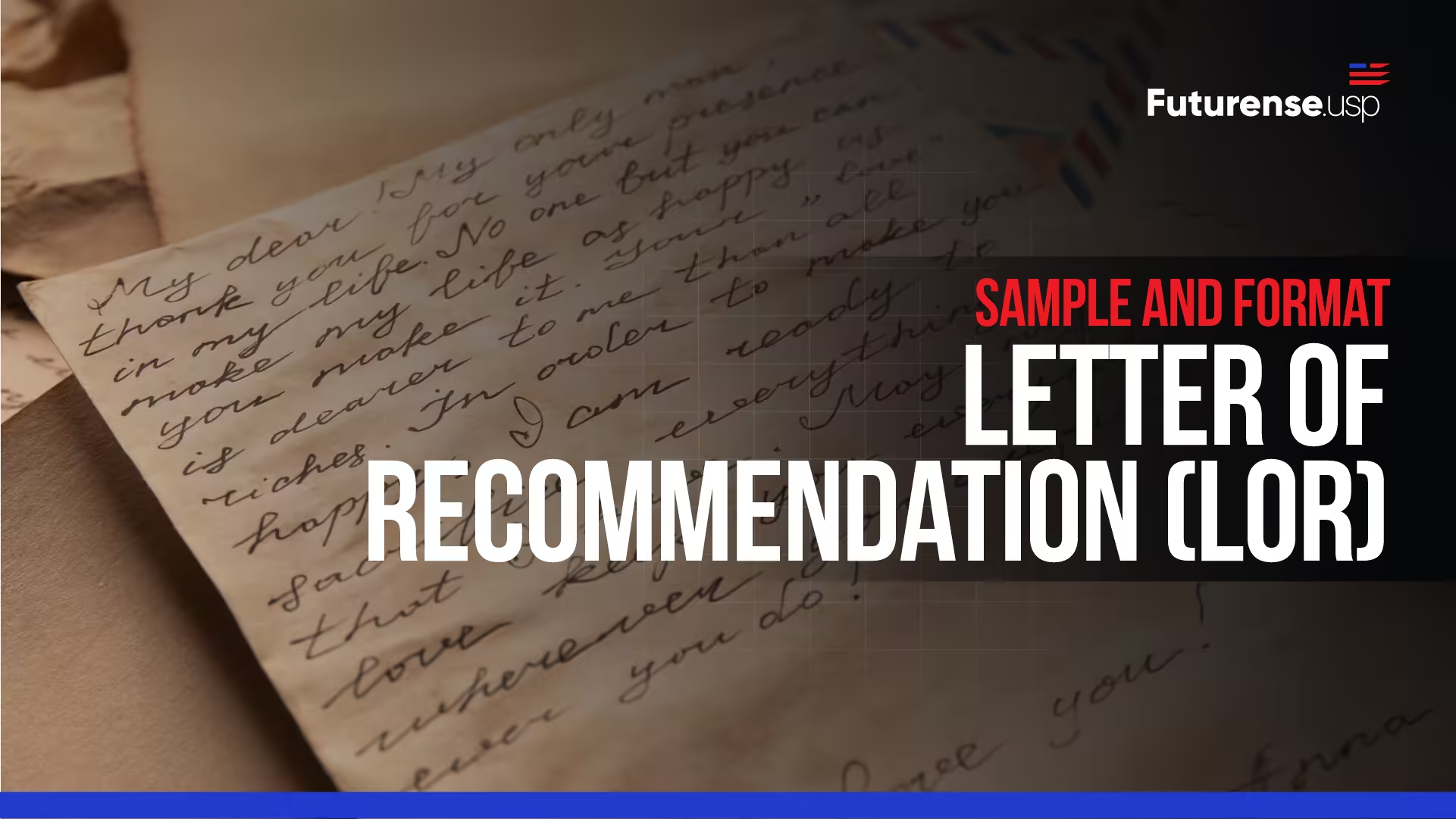A Letter of Recommendation (LOR) is a vital component of academic and professional applications, especially for graduate or master’s programs. It serves as a personalized endorsement, showcasing an applicant’s qualifications, work ethic, and suitability for a program or position. In this guide, we’ll cover the full form and importance of LORs, their formats, effective writing strategies, and their role in the admissions process. Whether you’re preparing an academic or professional LOR, this resource will help you create one that is both compelling and impactful.
What is a Letter of Recommendation (LOR)? Full Form and Significance

The full form of LOR is "Letter of Recommendation". It is a formal letter written by someone who knows the applicant in a professional, academic, or personal capacity. LORs validate an applicant's achievements and qualities, providing a perspective that goes beyond grades and test scores.
Admissions officers rely on LORs to gauge:
- Academic Potential: Insight into the candidate’s intellectual capabilities and academic rigor.
- Work Ethic: Evidence of dedication, responsibility, and persistence.
- Personal Qualities: Attributes like leadership, adaptability, and teamwork.
- Professional Skills: Highlights of real-world expertise and problem-solving abilities.
For graduate schools or master’s programs, LORs help determine whether the applicant is a good fit for the specific program and institution.
Importance of Letter or Recommendation
The admissions process for graduate schools is competitive, and LORs play a pivotal role in differentiating applicants. A strong letter of recommendation can:
- Personalize the Application: Offering stories and examples of the applicant’s skills and experiences.
- Strengthen the Narrative: Complementing other materials like personal statements or CVs.
- Demonstrate Fit: Show how the applicant aligns with the program's values and requirements.
Graduate programs often request academic LORs from professors or professional LORs from employers, depending on the applicant’s background and the program's focus.
LOR Format: Structuring a Strong Recommendation
A well-organized LOR ensures clarity and professionalism. Here’s a breakdown of the ideal format:
1. Introduction
- Date: Ensure the letter is dated.
- Recipient Details: Include the university or institution’s name and address.
- Salutation: Address the letter to a specific person or "Admissions Committee."
Example:
"To the Admissions Committee of [University Name],"
Establish the purpose of the letter and the relationship with the applicant.
2. Relationship with the Applicant
- Explain how you know the applicant (e.g., professor, supervisor, colleague).
- Specify the duration and context of the relationship.
Example:
"I have had the pleasure of teaching [Applicant Name] in two advanced courses over the last two years and serving as their thesis advisor."
3. Highlighting Key Strengths
Tailor this section to the program:
- For academic LORs: Focus on intellectual abilities, critical thinking, and academic performance.
- For professional LORs: Highlight work experience, achievements, and skills like leadership and teamwork.
Pro Tip: Always include specific examples to back up your claims.
Example:
"During her internship, [Applicant Name] led a key project that increased team efficiency by 25%. Her ability to analyze challenges and deliver solutions impressed everyone."
4. Specific Achievements and Fit for the Program
- Discuss how the applicant’s qualifications align with the specific program they’re applying to.
- Mention any personal qualities that make them a good fit for the graduate program.
Example:
Given her passion for sustainable engineering and her excellent research on renewable energy, I am confident she will excel in your Master’s in Environmental Science program."
5. Conclusion
- Reiterate your endorsement with enthusiasm.
- Invite follow-up inquiries by providing your contact information.
Example:
"I strongly recommend [Applicant Name] for admission to your program. Please feel free to contact me at [email address] or [phone number] if you require further information."
6. Signature
- Include a handwritten or digital signature for authenticity.
- Add your typed name, title, and affiliation.
Writing the LOR: Tips for Success
Writing a compelling LOR requires attention to detail and personalization. Here are key practices to follow:
- Be Specific: Include concrete examples of achievements rather than vague praise.
- Instead of: "She is very hardworking." Say: "She completed a year-long research project on artificial intelligence while maintaining a 4.0 GPA."
- Tailor the LOR: Address the requirements of the specific program or field of study.
- Highlight Soft Skills: Showcase personal qualities like adaptability, leadership, and problem-solving.
- Keep it Professional: Maintain a formal tone while expressing genuine enthusiasm.
- Review for Clarity: Ensure the letter is concise (about 500-600 words) and free from grammatical errors.
LOR Sample
Here’s an example of a strong academic LOR:
[Your Name]
[Your Title/Designation]
[Your Institution/Organization Name]
[Date]
To the Admissions Committee,
It is my pleasure to recommend [Applicant Name] for the masters data science [University Name]. I have worked closely with [Applicant Name] for three years as their professor in Advanced Mathematics and Machine Learning, during which I witnessed their exceptional academic abilities and dedication.
[Applicant Name] demonstrated a strong aptitude for complex problem-solving, consistently ranking in the top 5% of the class. Their thesis on predictive modeling was not only innovative but also earned them accolades at our university's research symposium. Beyond academics, they showcased leadership skills by mentoring junior students and collaborating on interdisciplinary projects.
Given their academic rigor, passion for
About Us
Upskill Now
Hire Now
MS in Computer Science in USA
With their dedication and commitment to excellence, I am confident [Applicant Name] will thrive in your program. Please don’t hesitate to contact me at [email] or [phone] should you need any additional information
Sincerely,
[Signature]
[Your Name and Title]
Conclusion
A Letter of Recommendation (LOR) is more than a formality in the admissions process; it’s a crucial tool to communicate an applicant's potential. A well-structured and specific LOR can significantly impact an applicant's chances of gaining admission to their desired program. By adhering to the outlined format and incorporating personalized details, you can craft a strong recommendation that leaves a lasting impression on admissions officers.
Frequently Asked Questions
What is the difference between an academic LOR and a professional LOR?
An academic LOR focuses on the applicant’s intellectual abilities, academic performance, and research potential, while a professional LOR emphasizes work experience, technical skills, and contributions to professional settings.
How many LORs are typically required for a master’s program?
Most master’s programs require 2-3 LORs from a mix of academic and professional recommenders, depending on the program.
Can I write my own LOR if my recommender is too busy?
While some recommenders may ask you to draft the LOR, it’s best to provide them with key details and let them finalize it to maintain authenticity.
Can I use the same LOR for multiple applications?
It’s better to customize LORs for each program to address specific requirements and demonstrate a genuine fit.







.avif)
.avif)